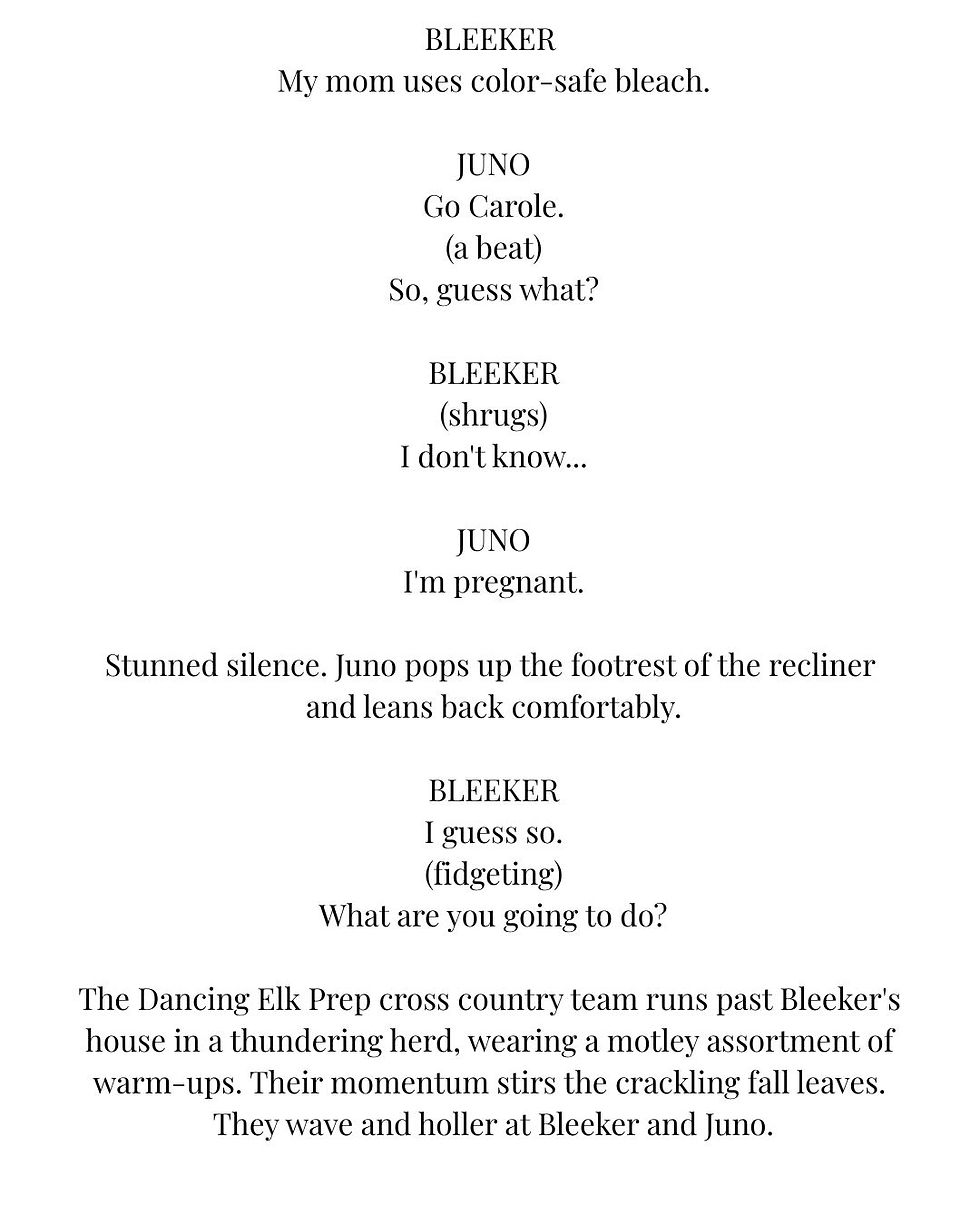Guest Blog: I Learned Everything You Need to Know About Dialogue from Juno
- morganeboydauthor
- Oct 2, 2025
- 3 min read
An integral piece of Gates Annai lore is that I was once in film school with aspirations to be a super-cool writer-producer-director-extraordinaire. That was, until I learned that the film industry isn’t the best to go into if you want like, a dog… or a life… Immediate apology to any film bros reading this.
However, film school taught me just about everything I know now about writing novels—and the thing that influenced my writing the most? A little film called Juno (2007).
If you haven’t heard of it, Juno stars Elliot Page (Juno) and Michael Cera (Paul Bleeker) after a fateful highschool night lands them in an unexpected teen pregnancy, and it is the movie to learn about dialogue because it is a masterclass of subtext.
[Before we get into it, as a disclaimer, Elliot Page, the actor who played Juno, uses he/him pronouns, but the character of Juno uses she/her pronouns, so when I’m referring to the character, I will use the pronouns used in the movie.]
Subtext is everything the characters don’t say. It’s how what we hide is more telling of who we are and how we feel than what we admit to. It is how characters reveal how they need to grow without knowing it—we call this the unconscious need, it’s the thing that a character has to realize by the end of the story to overcome their flaw.
One scene we studied extensively in Juno is when she goes to tell Bleeker (the father) that she’s pregnant. Juno’s flaw within the story is that she wants to be loved but feels like she’s undeserving of it—stemming from her abandonment by her mother, just keep that in mind.

So we get into this scene where she’s recreated her living room on his front lawn and is waiting for him to come out. Before we even get into the first word of dialogue spoken, you have to understand that all dialogue has a goal, and a strategy. Juno’s initial goal is to gain comfort from her friend and the father of her child, but her flaw means that she’s unable to ask for comfort flat-out, she wants to appear cool and unaffected.
Her strategy, then, is that she’s hoping recreating the living room set will cause him to take the bait and ask her what’s going on. But he doesn’t—because Bleeker is trying not to be awkward in front of the girl he likes and just slept with.


When her first strategy doesn’t work, Juno moves on to the next—she tries to shock him by just telling him, “I’m pregnant” Remember that she wants comfort, she doesn’t want to do this alone, so when Bleeker responds, “what are you going to do?” it puts the responsibility back on her—she’s failing her goal. Then, Bleeker doubles down by trying to escape the situation, “I’m supposed to be running.” But Juno hasn’t gotten what she wants yet, so she just says “I know.”
Juno tries again to shock him by bringing up abortion in a cavalier way—she still wants the reaction, and Bleeker is still unwilling to give it to her.
Bleeker does care, and he shows that through his efforts to match her energy—to support her in what she wants to do rather than tell her what he wants or thinks. But because Juno isn’t getting what she wants, she changes strategy one last time and puts up a wall between them.

“I’m real sorry I had sex with you, I know it wasn’t your idea.” She takes him out of this tender moment they had and recontextualizes that it was her idea, and that she had taken advantage of him, so it only makes sense for her to deal with the consequences on her own.
He knows something has been taken from him, so he responds, “Whose idea was it?” He’s confused—hurt. But Juno leaves.
You can see how this is a much more interesting scene and reveals so much more about the characters than had Juno just strolled up and said, “hey I’m pregnant and scared and I need you to be there for me.”
That’s subtext. That’s how it’s used to give us so much more information, and how it enables conflict to keep the story moving.
I could go into just about any scene in Juno and pull apart how it reveals character and growth, but then this post would be like ten thousand words too long. What I will say is that I recommend going and watching the movie yourself and look for these moments of subtext, goal, and strategy.
It’s definitely cheaper than film school.
Gates Annai is a life-long writer and aspiring author, drop out filmmaker, and enthusiastic dog-lover. Check out her blog, www.gatesannai.com, to explore topics on how filmmaking and novel writing intersect, media analysis from a storytelling perspective, or why she chose this instead of being a super cool film director.



Comments